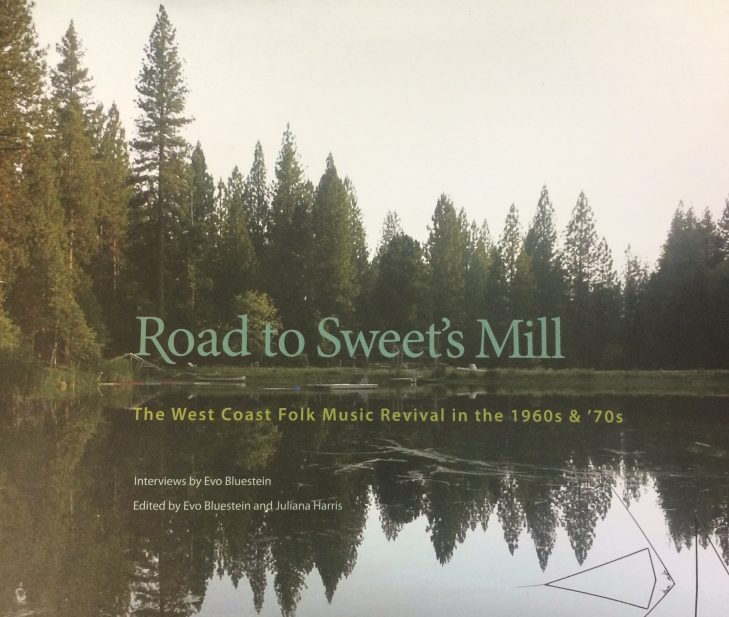Evo Bluestein, a longtime folk musician and music educator in the Fresno area, authored the book “Road to Sweet’s Mill: The West Coast Folk Music Revival in the 1960s and ’70s.”
The book, published by The Press at California State University, Fresno, provides a rare glimpse into a regional folk subculture of the era with archival recordings, photos, interviews and more.
“The Press is delighted to publish ‘Road to Sweet’s Mill.’ The recollections of the artists who gathered there and the CD of their performances capture the voices of the Valley that The Press seeks to bring to a wider readership,” said Honora Chapman, associate dean of the College of Arts and Humanities at Fresno State. “Students and lovers of folk music will revel in the details contained in these memories.”
The book centers on Sweet’s Mill, a former logging camp that became the magnet for many key folk and old-time music figures together, beginning in the early 1960s. Sweet’s Mill was in the foothills above Auberry, east of Fresno. The annual events were billed as a “folk music camp and life festival.” The events that evolved there were part campout, part workshops and all jam.
Against the backdrop of a tumultuous time in our nation’s history, Bluestein’s interviews weave the significance of broader social issues into our local fabric. And the music and dance of Sweet’s Mill provides a soundtrack.
“Historians of labor movements will find that the testimony of Agustin Lira sheds new light on the happenings in Delano,” with the United Farm Workers movement, Chapman said. “”Sweet’s Mill’ is a truly satisfying read that engages all the senses in a tour of a bygone age.”
The book consists of dozens of interviews that Bluestein began capturing in the 1980s, “when I realized we were involved in something unique that should be documented.”
For a quarter of a century, the interviews languished in a file drawer, until Bluestein took another look at them. Some of those interviewed have since died.
“Rereading the interviews, I was taken in and moved by the stories,” Bluestein wrote. “I soon realized that these oral histories documented the development of the folk scene on the West Coast, beginning in the 1950s, with an influence lasting to the present.”
Evo Bluestein first visited Sweet’s Mill in 1963 when he was just 7 years old. His parents were friends with Edith and Virgil Byxbe, who owned that land that became Sweet’s Mill music camp. Later, Bluestein began performing with the other musical artists at Sweet’s Mill.
“Sweet’s Mill’s gradual evolution paralleled a growing national interest in world music and dance. It became the place to gather, and, as word spread, people in the know wrote to Virgil to reserve their campsites in the woods. Eventually, the attendance grew to more than 400 people for the annual 10-day summer camp,” Bluestein wrote in the book’s introduction.
Bluestein is a familiar name to the Fresno folk music scene. When he was growing up, many of America’s greatest folk performers and musicologists came through his family’s household. Evo’s father, Gene, was an English professor at Fresno State and established a Folk Artist in Residence program at the University.
In 1974, Gene Bluestein started touring with his children — Joel, Frayda, Evo and Jemmy — as the Bluestein Family, performing folk music for more than 20 years.
“Road to Sweet’s Mill” contains hundreds of photos from performances at the music camp across the years. An audio CD also accompanies the book, with 22 rare and historical field recordings — the earliest from 1964, the most recent from 1986. The book also includes an extensive glossary of “Who’s Who and What’s What.”
The book is $40 and includes an audio CD. It can be purchased on The Press website and on Amazon.





